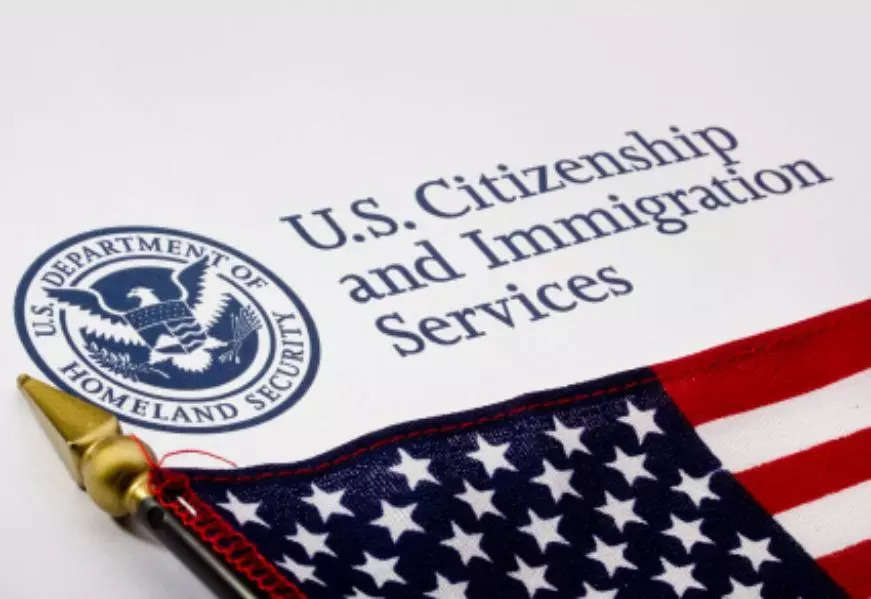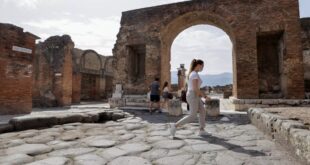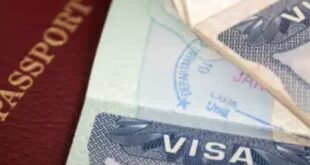[ad_1]

Last month, an announcement by US Ambassador to India Eric Garcetti about plans to implement a pilot programme, that would allow domestic [in the US] visa renewal for qualified H&L-category employment visa applicants, was welcomed by thousands of Indian professionals working in the US.
Currently, Indians on H-1B and L visas in the US face a cumbersome process of restamping visas by returning to India resulting in long waiting periods, uncertain outcomes, absence from the workplace and separation from families in the US.
However, the delay in the implementation of the programme is cause for disappointment. Early this year, the US state department, had announced the launch of the pilot programme “later this year” to offer visa renewal options in the US for H-1B and L-1 workers. Later in June this year, during the state visit of Prime Minister Narendra Modi to the US, a statement released by the White House announced again that the stamping of work permit visas including the H-1B visa renewal was to be allowed in-country in the US. So even though the move is being welcomed by thousands of Indians; uncertainty over the timeline is causing worries and uncertainty.
“The announcement of the pilot programme to streamline H-1B visa processing in the US earlier this year was met with great anticipation and hope within the immigration community. It is both encouraging and disappointing to note the developments surrounding this programme,” Emily Neumann, attorney at Houston-based business immigration law firm Reddy & Neumann, told the Times of India. She, however, feels that it is encouraging that the US department of state is still committed to making this pilot programme a reality. “The potential benefits it holds for both visa applicants and immigration authorities are significant. Streamlining the H-1B visa process could reduce processing times, improve efficiency, and facilitate smoother travel for visa holders, ultimately enhancing the overall immigration experience,” she said.However, the news of the timeline being pushed back to next year does come as a disappointment to many considering that initial announcements had raised expectations that the programme might be implemented by the end of this year, which would have been extremely helpful for individuals planning to visit their families during the busy holiday season. “As a result of the delay, the unavailability of both dropbox and interview appointments continues to pose challenges. Many individuals who had eagerly hoped to reunite with their loved ones over the holidays are now faced with the difficult task of rethinking their plans. The holiday season is a time for family togetherness, and these changes can significantly impact the lives and plans of visa applicants. I remain hopeful that the pilot programme will eventually come to fruition, offering the promised benefits to the immigration community. In the meantime, it’s crucial for individuals to stay informed and seek guidance to adapt their travel and immigration plans accordingly,” Neumann said.Some legal experts are still hopeful about an early implementation of the stateside stamping of H-1B visas. “We have spoken to American Immigration Lawyers Association and we are told that stateside visa revalidation programme is on track to be rolled out by the end of the year (2023). Initially, the visa revalidation programme will only be available for H-1Bs (not H-4). Earlier the state department had indicated that L-1s would also be included in the pilot programme, but that will not be the case. The pilot programme will not be limited to any specific nationality (all are covered including Indians) and they will not require interviews; as such anyone who needs an interview, for any reason, will be ineligible,” said Manjunath Gokare, founder and managing partner of Gokare Law Firm, a business immigration law Firm based in Alpharetta, Georgia. He added that indications are that the pilot programme will be limited in scope with demand likely to far exceed how many it can serve.
“However, the good news is that the state department is hoping to expand this programme vastly in 2024. We are cautiously optimistic that in 2024, the stateside visa revalidation programme, will be extended to H-4 dependents and L-1 visa holders and their L-2 dependents. When that happens, thousands of Indians on H-1B and L-1 visas (and their dependents) will be benefited as they will not have to go through the arduous process of visa stamping in India,” Gokare said.
For the thousands of Indians in the US who face huge backlogs for permanent residence or green cards; being allowed to obtain H-1B visa renewals before their journeys to India will eliminate concerns about potential delays due to administrative processing at the embassy and consulates. H-1B visas are usually granted for six years after which extensions must be applied for.
L-1 visa extensions, too, must be applied for and are usually granted in two-year increments at a time. Under the current rule, H-1 and L-1 visa holders, who travel to India, need to get their passports stamped at the US Embassy in Delhi or consulates in Chennai, Hyderabad, Kolkata, or Mumbai, before they travel back to the US.
“The green card backlog is having inhumane consequences, as numerous reports highlight the plight of highly skilled immigrants on temporary work permits who are unable to travel to attend family emergencies, funerals, or address other critical family matters due to the unavailability of appointments for H-1B visa stamping,” says Dr Raj Karnatak, an Indian physician in the US, who received his medical training in India and obtained an internal medicine residency in Brooklyn. “Prime Minister Modi praised the initiative to facilitate domestic visa stamping for specific categories in the US. However, regrettably, the rollout of stateside visa stamping for high-skilled immigrants has been plagued by delays, and there is no clear indication of whether this will ever become a reality,” he adds.
Benefits of stamping work permit visas in the US
Less pressure on consulates and embassies by streamlining of the visa renewal process for those in the US, resulting in shorter waiting times for interview slots.
Applicants to access appointments more efficiently and significant implications for the safety and predictability of travel for H-1B visa holders outside the US.
Obtaining visa renewals before journeys to India will eliminate concerns about potential delays due to administrative processing at consulates. As a result, H-1B workers can travel with the confidence that they will re-enter the United States smoothly.
Vital for personal and professional travel planning, offering stability and convenience to both visa holders and their employers.
A positive step toward enhancing the overall experience of H-1B visa holders and streamlining visa renewal processes and reducing travel-related uncertainties.
Timeline
In February this year, and later again in June, the United States department of state announced a pilot programme for in-country [in the US] renewal of certain petition-based temporary work visas, including the H-1B.
Julie Stufft, deputy assistant secretary for visa services in the US bureau of consular affairs, had said in a media interview that during the pandemic it was very difficult for people to return to their home country and often they were not able to get visa appointments to come back to their home in the United States; and that problem was being addressed through the pilot programme.
The announcement of the pilot programme was also made by US state department deputy assistant secretary Nancy Jackson at an US India Summit.
Ajay Bhutoria, a prominent advocate for immigration issues and the US President’s advisory commissioner on the AANHPI (Asian American, Native Hawaiian, and Pacific Islander) commission, had made recommendations for this change.
He presented a comprehensive recommendation to the immigration sub-committee during a September 2022 commission meeting.
The recommendation by Bhutoria garnered unanimous approval from the commission, reflecting the urgency and necessity of addressing the difficulties faced by legal immigrants.
During the state visit of Prime Minister Narendra Modi to the United States, the announcement regarding the H-1B visa renewal stamping being conducted in the US was made at a community event.
The joint statement released by the White House following PM Modi’s visit mentioned this development. There doesn’t need to be any official change in US immigration law for the state department to start this programme. Before the pilot can be launched, a consular division has to be started in Washington DC.
Visa renewals within the USA were, in fact, a reality until it was stopped by the state department in 2004 citing interview and biometric requirements that went into effect post 9/11.
Applicants could earlier send their passports to the state department in St Louis, Missouri, and get their visas revalidated.
The need for this programme became very evident during pandemic, when consulates shut down and people could not travel as their visas had expired.
Source link







